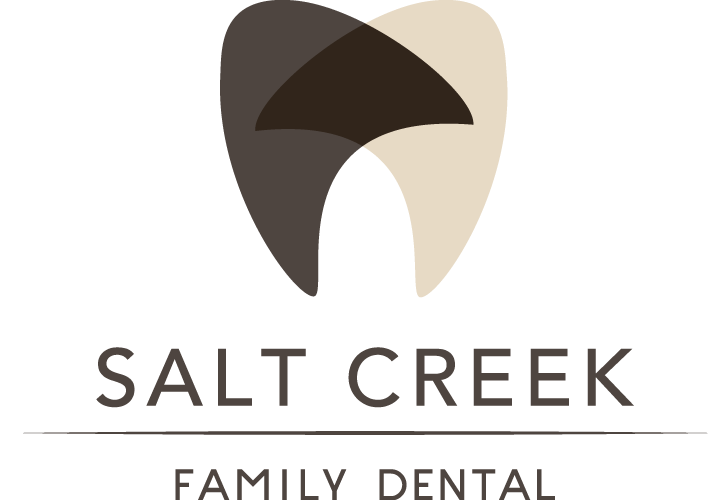Dental Health and GLP-1 Weight Loss Drugs: What You Need to Know
Maintaining optimal dental health is essential for overall well-being, and it's important to stay informed about new trends and treatments that could impact both your oral health and general health. One such trend is the increasing use of GLP-1 (glucagon-like peptide-1) weight loss drugs, such as Ozempic, Wegovy, and Saxenda, which have gained popularity for their effectiveness in weight management. However, like any medication, these drugs may have side effects that impact oral health.
At Salt Creek Family Dental, serving Hinsdale, Oak Brook, La Grange, Western Springs, and surrounding areas, Dr. Medynskyj and our team prioritize your dental health, whether you’re managing a medical condition or exploring GLP-1 medications for weight loss. This blog explores how GLP-1 receptor agonists work, their potential side effects, and how to protect your dental health while using them.
What Are GLP-1 Weight Loss Drugs?
GLP-1 receptor agonists are a class of medications that mimic the hormone GLP-1, which helps regulate blood sugar levels and appetite control. Originally developed for treating type 2 diabetes, these drugs are now widely prescribed for weight loss therapy.
Common GLP-1 weight loss drugs include:
Semaglutide (Ozempic, Wegovy)
Liraglutide (Saxenda)
These medications slow gastric emptying, helping patients feel full longer, leading to reduced calorie intake and improved insulin regulation. As a result, GLP-1 medications are considered a breakthrough for obesity treatment.
How Do GLP-1 Weight Loss Drugs Affect Your Dental Health?
While GLP-1 medications provide numerous benefits for weight loss, they can also lead to side effects that may impact oral health. Understanding these effects is crucial for maintaining healthy teeth and gums.
1. Dry Mouth (Xerostomia)
A common side effect of GLP-1 drugs is dry mouth, also known as xerostomia. This occurs when the salivary glands produce less saliva, leading to increased risk of cavities, gum disease, and bad breath.
Why is saliva important?
Neutralizes acids in the mouth
Washes away food particles
Protects against tooth decay
How to manage dry mouth:
Stay hydrated by drinking plenty of water
Use saliva substitutes or sugar-free gum
Avoid sugary and acidic foods
Consult Salt Creek Family Dental for additional solutions
2. Nausea and Vomiting
Nausea and vomiting are frequent side effects of GLP-1 drugs, particularly when starting the medication. Repeated vomiting can expose teeth to stomach acid, leading to enamel erosion, tooth sensitivity, and decay.
Protecting your teeth from acid damage:
Rinse with water or fluoride mouthwash after vomiting
Avoid brushing immediately after vomiting to prevent enamel wear
Talk to your healthcare provider if nausea persists
3. Changes in Eating Habits
Since GLP-1 medications reduce appetite, some patients skip meals or consume fewer nutrients, leading to weakened teeth and gums.
Essential nutrients for oral health:
Calcium (for strong enamel)
Vitamin D (supports bone health)
Phosphorus and Magnesium (for overall tooth strength)
Tips to support dental health while on GLP-1 drugs:
Maintain a balanced diet
Include nutrient-rich foods even in smaller portions
Consider chewing sugar-free gum to stimulate saliva production
How to Protect Your Oral Health While Using GLP-1 Weight Loss Drugs
If you’re using GLP-1 medications for weight loss, follow these steps to maintain strong teeth and healthy gums:
1. Schedule Regular Dental Checkups
Routine visits to Salt Creek Family Dental allow Dr. Medynskyj and our team to monitor for potential dental issues such as cavities, gum disease, and enamel erosion.
2. Practice Excellent Oral Hygiene
Brush twice daily with fluoride toothpaste
Floss daily to prevent plaque buildup
Use alcohol-free mouthwash to protect enamel and gums
3. Stay Hydrated
Drinking plenty of water can help combat dry mouth and improve saliva flow.
4. Avoid Sugary and Acidic Foods
Limit soda, citrus, and processed sugars
Opt for tooth-friendly snacks like cheese, nuts, and leafy greens
5. Discuss Dry Mouth Treatments with Your Dentist
If dry mouth persists, ask about saliva stimulants, prescription mouth rinses, or fluoride treatments to protect your dental health.
Conclusion
GLP-1 weight loss drugs like Ozempic, Wegovy, and Saxenda offer a promising solution for weight management, but they may also introduce dental side effects such as dry mouth, nausea, and enamel erosion. At Salt Creek Family Dental, we are dedicated to helping you protect your smile while achieving your health goals.
If you're taking GLP-1 medications and have concerns about your oral health, schedule an appointment with Dr. Medynskyj. Serving Hinsdale, Oak Brook, La Grange, and Western Springs, we provide comprehensive dental care tailored to your unique needs.
Your oral health is essential to your overall well-being, and we’re here to support you every step of the way! Call us at 630-323-0060 with any questions or concerns.

